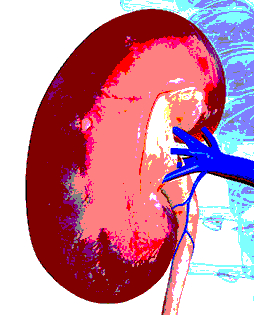Kidneys missed in COVID concerns
 Experts say millions of COVID-19 patients may have undiagnosed acute kidney injury.
Experts say millions of COVID-19 patients may have undiagnosed acute kidney injury.
Acute kidney injury (AKI) is a condition where the kidneys suddenly fail to filter waste from the blood, which can lead to serious illness or even death.
Existing data indicates approximately 20 per cent of patients admitted to hospital with COVID-19 develop AKI, rising to roughly 40 per cent for those in intensive care.
But UQ researcher Dr Marina Wainstein says the true numbers could be double those figures.
“Doctors look at the amount of urine a patient passes and the level of a compound called creatinine in the blood, which rises when the kidneys aren’t working well,” she said.
“However, if that creatinine rise occurs before a patient presents to hospital, we can miss the AKI diagnosis and fail to manage the patient appropriately in those early, critical days of hospitalisation.”
In a new study, Dr Wainstein measured the fall in creatinine levels, which often follows the initial rise. When this was factored in, the rate of AKI diagnosis in COVID-19 patients doubled.
“That was a pretty shocking finding,” she said.
Dr Wainstein said ‘missing’ AKI in COVID-19 patients is dangerous.
“Even though the AKI is already starting to improve in hospital, our research shows that these patients have worse in-hospital outcomes and are more likely to die compared to patients with no AKI,” she said.
Dr Wainstein said treatment for AKI can be as simple as checking a patient’s hydration level and stopping medications that can be toxic to the kidneys.








 Print
Print